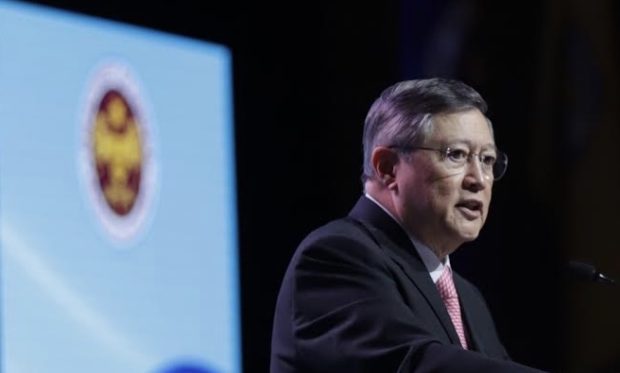Gov’t may destroy unsold luxury cars, says Dominguez
MANILA, Philippines — After two failed biddings for “hot” cars to raise more money for COVID-19 response, the government may have to revert to what it used to do to smuggled vehicles — destroy them.
The Bureau of Customs (BOC), the Bureau of the Treasury, and Land Bank of the Philippines on Monday were unable to dispose of five smuggled luxury cars seized last year.
It was the second auction held for the luxury vehicles which the BOC had priced totaling at least P29 million. Just like the first-of-its-kind auction held last Dec. 13, 2021 — which was also broadcasted live on Facebook, the second round attracted no bidders.
The cars placed on the auction block included a 2008 Ferrari Scuderia 430, which had a floor price of P23.2 million; a 2001 Porsche Boxster, worth at least P1.79 million; and the three Mercedes Benz units — a 2011 E220 (P1.5 million), a 2001 SLK55 (P1.3 million), and a 2001 SLK350 (P1.2 million). The BOC had wanted to generate up to P30-50 million from these cars.
After again declaring failed bidding for all five vehicles, Deputy National Treasurer Erwin Sta. Ana said they will “seek the principal’s guidance on the next steps” — referring to Finance Secretary Carlos Dominguez III, whose Department of Finance (DOF) oversees the two agencies and the state-run bank.
Article continues after this advertisementAsked on Monday if destroying the “hot cars” would no longer be an option, as the government had changed its tack against vehicle smuggling to raise additional revenues, Dominguez replied: “Destruction is an option.”
Article continues after this advertisementIn the past, the BOC destroyed confiscated vehicles to supposedly show that the government was serious in its anti-smuggling campaign.
But BOC Assistant Commissioner and spokesperson Vincent Philip Maronilla last month said that their bosses — Dominguez and President Duterte — had a change of heart amid the prolonged pandemic. “This time around, because of the pandemic, we adjusted to what the government needed” — that is, more money to beef-up the COVID-19 war chest.
It may also be a pity to destroy the smuggled luxury vehicles as the BOC kept them inside containers so they remain in good condition and would not depreciate in value.
Asked by the Inquirer on Monday why the auctions had lackluster interest and if the pricing turned off potential bidders, Maronilla replied: “We’ve already reassessed the value after the first failed bidding.” Some social media comments said the cars may have been overpriced.
“We have coordinated this with the BOC’s import assessment service, and their position is that the base value given is reasonable and consistent in protecting the interest of the government,” Maronilla said.
What to do next? The Customs Modernization and Tariff Act (CMTA) allows donating seized vehicles to government offices. But BOC Deputy Commissioner Edward James Dy Buco said luxury cars were not apt for public use.
Also, under BOC rules, the agency can directly negotiate with interested parties if the second bidding fails.
However, given that the market for these types of expensive cars was a niche or catering to a very few moneyed persons, it may be possible that the BOC could negotiate with dubious personalities who intended to smuggle the same vehicles in the first place.
But Maronilla said in an interview last month that the BOC’s intelligence group will do a background check on all potential buyers using the documentary requirements they should have submitted.
According to Maronilla, the traders who tried smuggling the five luxury vehicles had already been haled into court, and the BOC had also sought the help of the National Bureau of Investigation (NBI) to dig deeper into the personalities involved in hot cars trade.
“We want to avoid a situation where our manner of disposing of these items is a way for smugglers to circumvent the BOC process so they could try to get back their smuggled luxury items,” Maronilla had pointed out.
These smugglers had been supplying to a market which snapped up what Maronilla had called “super cars” — “when you buy them even on a second-hand basis, they’re more pricey because they run on a very limited production.”
The modus operandi of these smugglers? “They’ve been using our Port of Manila and the Manila International Container Port, hoping that they can pass the cars off as brand new cars of different models so that they can evade payment of the right duties and taxes,” Maronilla had said.
For instance, the Ferrari unit was priced by the BOC at over P23 million because it was a rare car. “In that kind of luxury car industry, it doesn’t necessarily mean that their depreciation of value is the same as ordinary cars; sometimes, there’s no depreciation. Sometimes, there are even rules of appreciation for these kinds of cars,” Maronilla had noted.
RELATED STORY:
No bidders for ‘hot cars’ but BOC plans auction repeat to raise pandemic response funds
